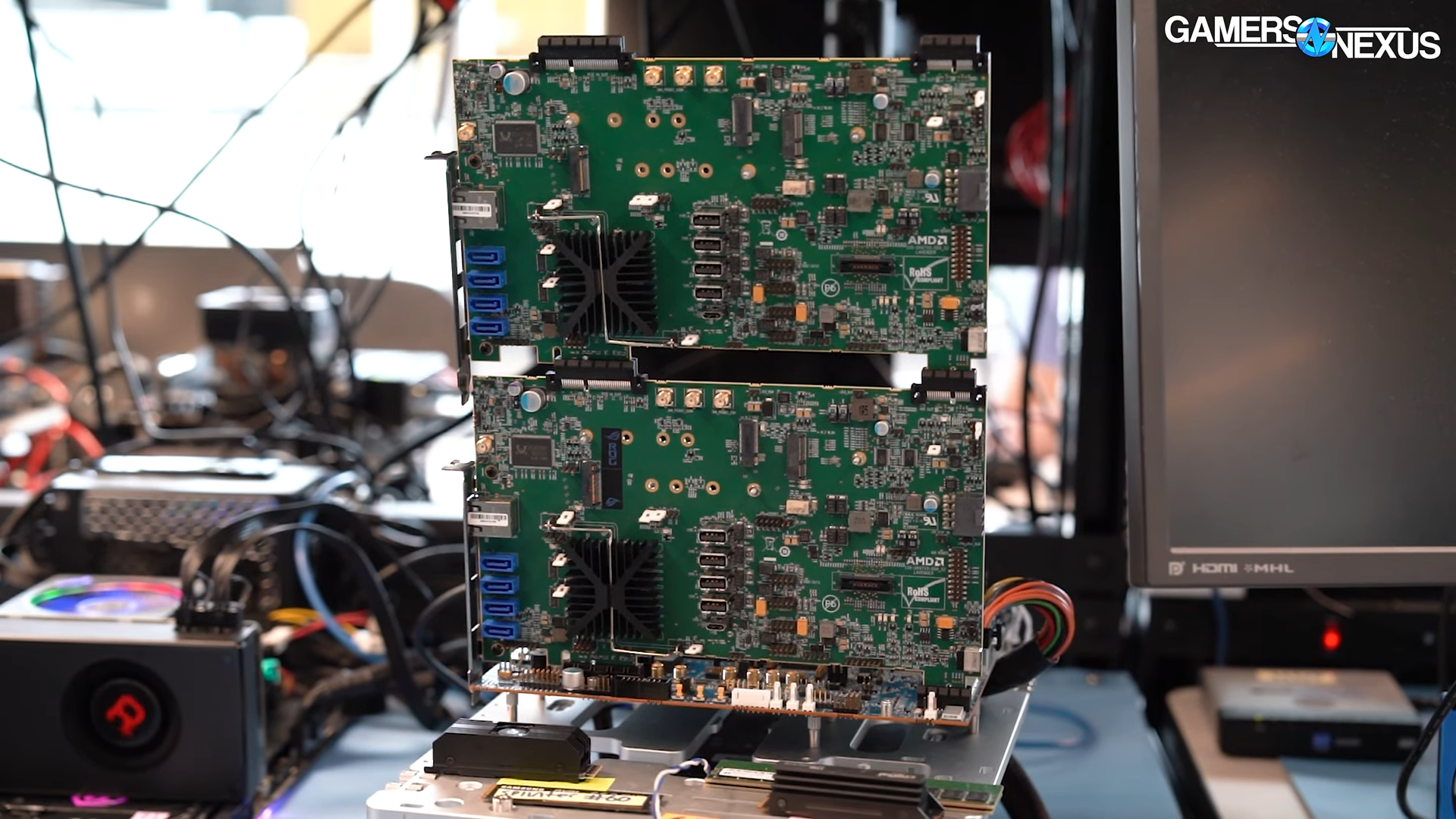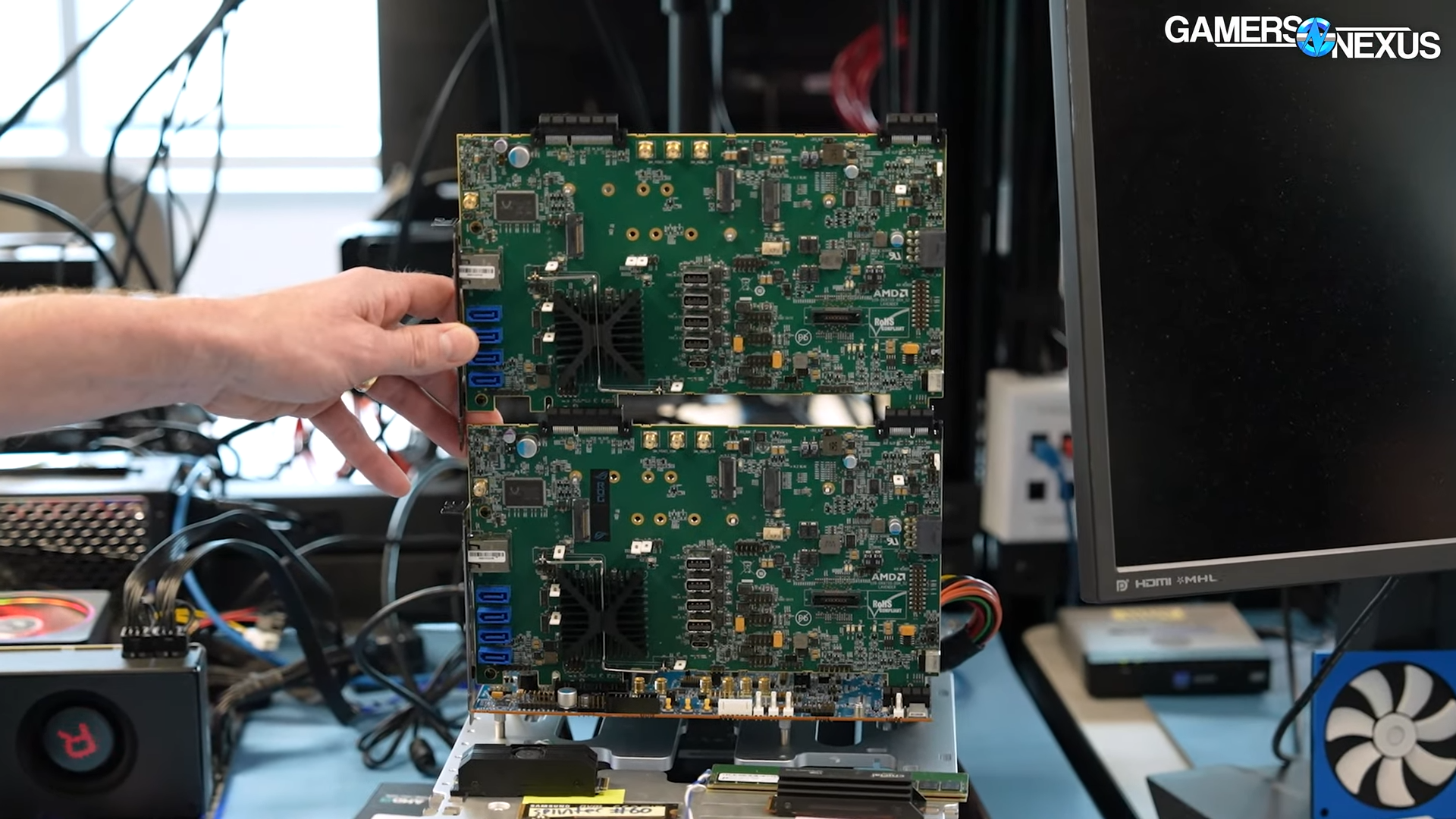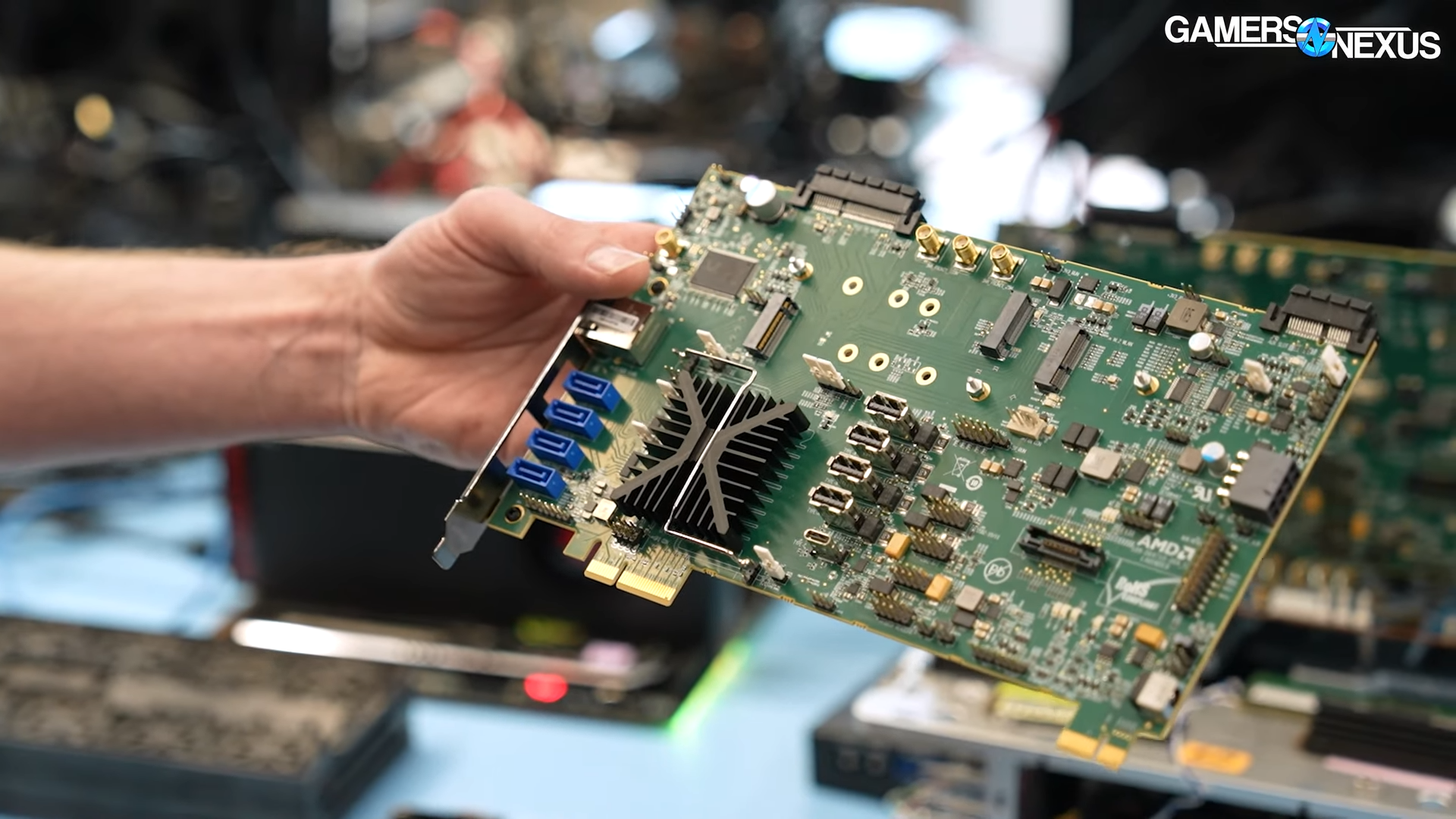
In a recent AMD lab tour documented by Gamers Nexus, AMD engineers showed off some wild equipment used to test chipset functionality on AM5 motherboards. The equipment comes in the form of slot-able, stackable chipset cards that are capable of simulating all of AMD's chipsets, including B650 all the way to X670E, and are capable of creating any I/O configuration motherboard manufacturers might put on their AM5 boards.
According to AMD's engineers, the chipset cards operate on a reference AM5 motherboard without its own chipset, that has additional PCIe plugs for housing the custom AMD chipset cards. The chipset cards come with a plethora of additional I/O connectivity, including SATA ports, several different versions of USB, M.2 storage, ethernet, and more. AMD's chipset cards can also be stacked on top of each other to add even more connectivity.

AMD's custom chipset cards make it super convenient to test the capabilities of its latest AM5 platform and Ryzen 7000 series processors. The cards can be used to simulate any number of I/O configurations, including B650, B650E, X670, or X670E motherboards, and to ensure the PCIe slots, controllers, and other I/O circuitry are all functioning properly. It also allows AMD to test new chipset designs without replacing its reference (testing) boards, which lowers cost.

The wildest part of AMD's chipset cards is that they can be "infinitely" stacked to create more I/O than what a standard AM5 chipset might offer. AMD's engineers did not say how many cards they were able to stack, but it appears AMD can stack an unlimited amount of cards together, as long as they stay within the limitations of the mainboard's PCIe Gen 4 interface.
AMD's stackable cards really show the strengths of its multi-chipset design, which it started to use with its AM5 platform. Not only is stacking multiple chipsets cost-effective in consumer-based AM5 motherboards, but it's also useful for testing purposes as well. We've even seen some AMD board makers take inspiration from AMD's stackable solutions and create their own X670 expansion kits that can be used to turn B650 motherboards into their higher-end contemporaries.







